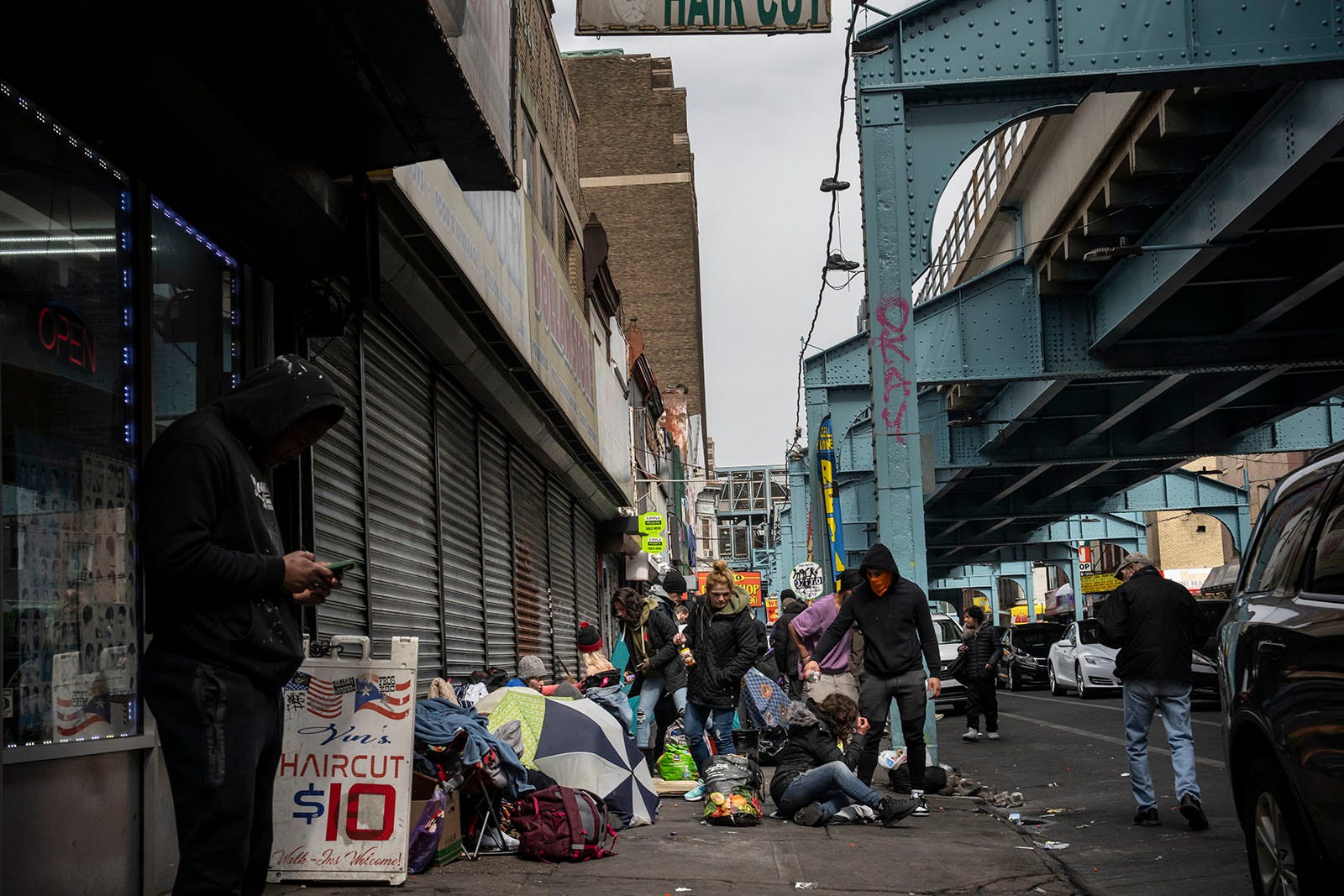Addiction Activists Say They’re ‘Reducing Harm’ in Philly. Locals Say They’re Causing It.

🌈 Abstract
The article discusses the ongoing opioid crisis in the Kensington neighborhood of Philadelphia and the debate around harm reduction approaches. It explores the perspectives of local residents, activists, and government officials on the effectiveness and impact of harm reduction strategies in the community.
🙋 Q&A
[01] Sonja Bingham's Perspective
1. What are Sonja Bingham's main concerns about the harm reduction efforts in Kensington?
- Bingham feels that the city is allowing drug users to "destroy" her community, while ignoring the needs of the local residents, especially children and families.
- She believes the harm reduction activists, many of whom are white and do not live in the predominantly minority Kensington neighborhood, are prioritizing the needs of drug users over the well-being of the local community.
- Bingham feels that the activists' actions, such as handing out free syringes and other supplies, are sending a message to local children that their lives and needs do not matter.
2. How has Bingham taken matters into her own hands to address the issues in her neighborhood?
- Bingham has been personally cleaning up the damage and debris left by drug users on her block every morning for the past three years.
- She uses a bullhorn to yell at drug users who congregate on her corner, telling them they cannot be there.
- Bingham has testified before the state House to advocate for the residents of Kensington, rather than the drug users.
- Her efforts have helped turn around her block, allowing the local children to play on the street again.
[02] Harm Reduction Advocates' Perspective
1. What are the key beliefs and goals of the harm reduction advocates in Kensington?
- Harm reduction advocates, such as Sarah Laurel of Savage Sisters, believe in meeting drug users "where they are" and providing them with resources and support to reduce the harms associated with drug use, rather than focusing on abstinence or sobriety.
- They argue that the traditional approach of making drug users "incredibly uncomfortable" to force them into recovery is outdated and ineffective.
- Harm reduction advocates prioritize the safety and dignity of drug users, providing them with services like syringe exchanges, Narcan distribution, and housing.
2. How do the harm reduction advocates respond to the criticisms from local residents like Bingham?
- Harm reduction advocates, such as the spokesperson for Prevention Point, argue that their efforts are aimed at building trust and helping drug users move towards a better place in their lives.
- They defend their work as "meeting people where they are" and treating addiction with "dignity and safety."
- Harm reduction advocates, like Laurel, dismiss the idea that drug users need to hit "rock bottom" in order to seek treatment, seeing that as an "antiquated idea."
[03] Government and Policy Responses
1. What policy changes are being proposed or implemented to address the issues in Kensington?
- City Council member Quetcy Lozada is leading an effort to institute a "triage system" in Kensington, where drug users would either be directed towards treatment or jail.
- Newly elected mayor Cherelle Parker has promised to develop a plan to "permanently shut down" the open-air drug trade in Kensington within her first hundred days in office.
- Republicans in the state House have impeached the city's progressive District Attorney Larry Krasner, blaming his reforms for the city's gun violence.
2. How are the local government's approaches being received by harm reduction advocates?
- Harm reduction advocates, such as those from Savage Sisters, have protested and pushed back against the city's efforts to crack down on the open-air drug market in Kensington.
- They have accused the city of wanting to "kill" their "family" and have described banning harm reduction as "genocide."
- The harm reduction advocates argue that the city's proposed policies are an "antiquated idea" that will only serve to further marginalize and harm drug users.